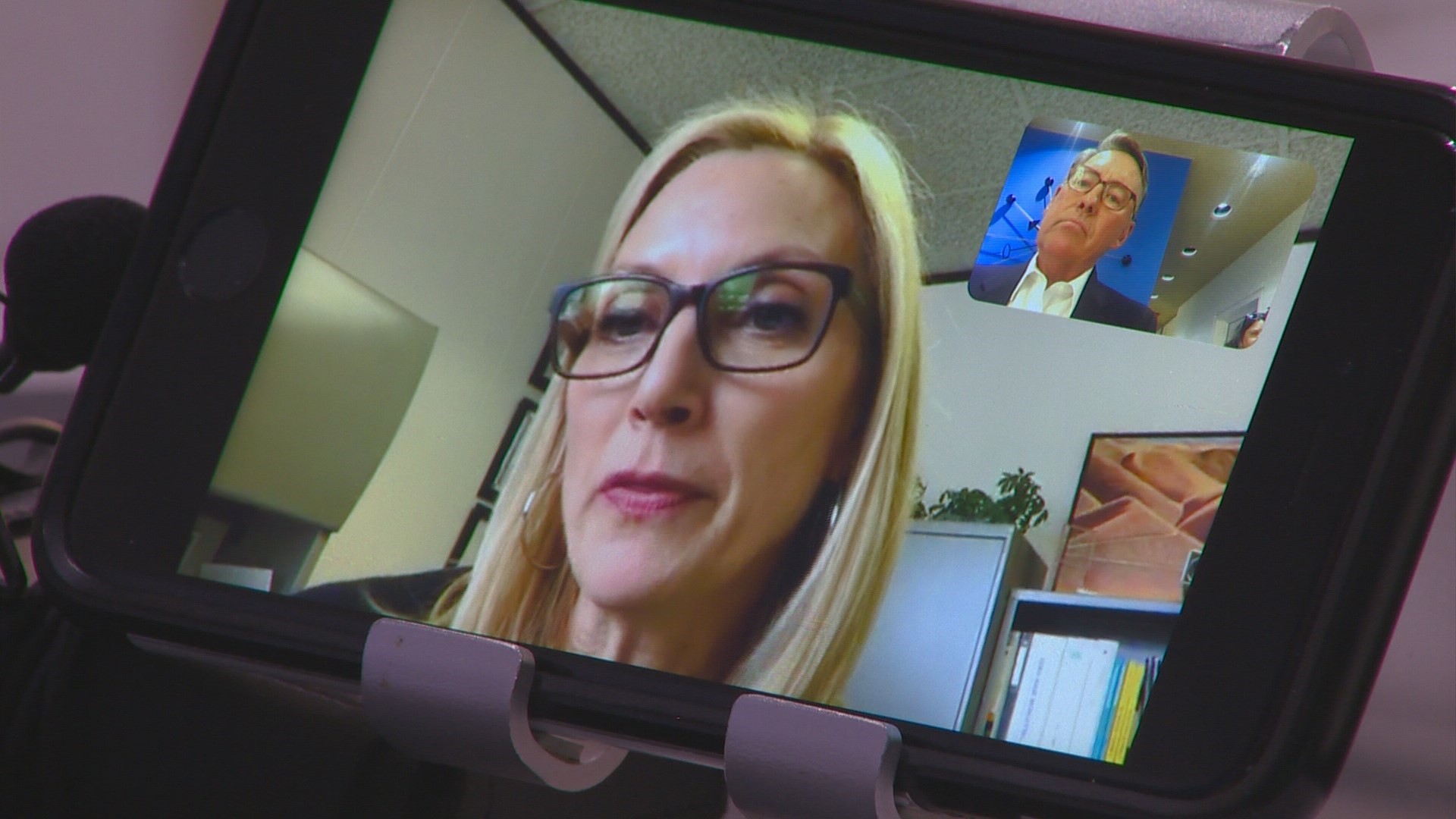BOISE, Idaho — It's never the wrong thing to do the right thing. But the COVID-19 coronavirus outbreak and the related, often-updated guidelines have ushered in a new age of etiquette, redefining some aspects of what the "right thing" is. It leaves many of us wondering: Is anything we used to do "right" anymore?
That includes something that used to seem so simple: going shopping for food and other basic household items.
KTVB's Mark Johnson brought some of your most frequently asked questions to Idaho Division of Public Health Administrator Elke Shaw-Tullock, and discussed them Wednesday on the News at Four. The conversation included your questions about grocery shopping and other situations that present challenges to social distancing.
Mark Johnson: I want to read a couple that we are seeing rise the top more than others, and the first has to do with grocery shopping, and the one overriding question is, should we wear gloves and masks when we go shopping?
Elke Shaw-Tullock: That's a great question. We do get asked that quite a bit, and I want to start by saying, the first line of defense is to make sure that if you are going grocery shopping, if you can go during a time when there are fewer shoppers there, if it's possible. Then the second line of defense is to, of course, make sure that you are, what most of the stores nowadays have, you know, sanitary wipes and cleaning supplies that you can adequately wipe down the grocery carts, maintain that same social distancing. Stay away from other shoppers. Especially stay away from store personnel because if you happen to be coming in, you certainly don't want to get those folks who are very essential to us, get them sick. If you can at all shop with doing online purchases and having delivery or pickup or ask someone else that's there to grab something for you. So minimizing your exposure to the extent possible is very important.
When you're done grocery shopping, wash your hands as soon as possible. Use hand sanitizer or sanitizing wipe before you get into your vehicle. Wash your produce and the things that you're handling as best you can after you get them home. So those are sort of the basic precautions, for sure. In terms of wearing masks we have been promoting, although this has been looked at even more closely now by CDC, but we have been promoting if you are sick, you want to protect other people from yourself and wear a mask but we have not been promoting that wearing a mask just as a general precaution - if you can maintain that six-foot distance and you're using really good hand hygiene.
Idaho COVID-19 latest: Latest news | Map of confirmed Idaho cases | Stay-at-home order details | COVID-19 resources | Testing sites | Employers hiring | Essential business list | Closings | School closings | Help nonprofits| Full COVID-19 coverage
Johnson: This [question] came [Wednesday]. And it says "Please, please, please, can you explain what self-isolation/social distancing means on the news? I work a hotline for COVID-19, and it's amazing how many people don't know exactly what that means. Seems pretty obvious, but maybe to many, it's not."
Shaw-Tullock: That's a great question. So, when we talk about social distancing, that means staying away from folks, it doesn't mean shutting yourself in a closet and completely isolating yourself from other people. We know that that causes a lot of anxiety and stress issues with it. But it really the whole point of trying to maintain a distance between yourself and another person, for example, is because the typical person when they cough or sneeze, if you think about that coming out of them, that's a good distance to stay away from any of those droplets coming out - is about six feet. So I kind of like to use that the concept of, like, gosh anybody near me if they cough or sneeze, I want to be able to be far enough away that I'm not going to come in contact with anything that might be coming at them. So that's what we mean by social distancing maintain that distance between you. Self-isolation really means to make sure that you avoid unnecessary situations where you might come into a larger group of people.
Facts not fear: More on coronavirus
See our latest updates in our YouTube playlist:
At KTVB, we’re focusing our news coverage on the facts and not the fear around the virus. To see our full coverage, visit our coronavirus section, here: www.ktvb.com/coronavirus.

